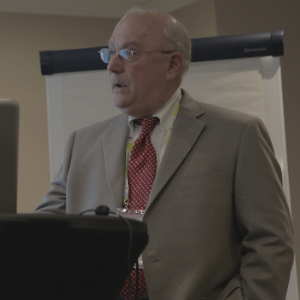Title : An integrated practice unit can address gaps in stroke care delivery to impact outcomes across the continuum of care
Abstract:
As the 5th leading cause of death and adult disability in the United States (US), stroke care is complex, involving multiple mechanisms and high risk and cost.Even when initial acute events are managed successfully, patient risk remains high from complications and poor risk factor management that can lead to rehospitalization and stroke recurrence. Current US stroke care delivery is fragmented and well-engineered to foster both miscommunication and uncoordinated, inefficient care across poorly integrated nodes of care. These nodes of care have varying geographies, personnel, and focus, and even when initial acute strokes are managed successfully, patient risk remains high from in-hospital complications like pneumonia and urinary tract infections (UTI) and poor risk factor management post-discharge. Despite advances in care, current stroke care delivery models have not addressed these limitations in a comprehensive way across the continuum of care. However, an Integrated Practice Unit model has the potential to improve care coordination across each node of care and has the potential to decrease morbidity and mortality and encourage better risk factor management for stroke patients.
An innovative stroke care delivery model was implemented at Ochsner Medical Center (OMC) in New Orleans, Louisiana, US in 2012 that combined integrated technology and real-time care redesign across the care continuum. Supported by a Health Care Innovation Award (#1C1CMS331043) from the Centers for Medicare and Medicaid Services (CMS), this model utilized an Integrated Practice Unit design and combined in-hospital and outpatient, home-based components to follow stroke patients from symptom onset through 12-months post-discharge. This novel Integrated Stroke Practice Unit combined an in-hospital component (called Stroke Central) with a home-based, outpatient component (called Stroke Mobile). Post-discharge, stroke patients and their families were visited 12 times (once per month) at home to assess overall health and recovery, evaluate risk factors, and provide stroke and stroke-related comorbidity management, comprehensive risk/recovery/recurrence education, and caregiver/family support.
This presentation will describe the US stroke care infrastructure, including stroke care delivery models and systems in place and benefits and limitations of each. An Integrated Stroke Practice Unit (IPU) Model and an example of an Integrated Stroke Practice Unit (ISPU) implemented at a hospital in Louisiana will be described.
Audience take away:
This presentation will provide its audience with detailed background on the issues surrounding effective stroke care in the US, including an overview and pros and cons of a number of stroke delivery care models. It will highlight an example of an Integrated Stroke Practice Model, including design, implementation, and challenges experiences. Specifically, this presentation will meet the following objectives:
- The current state of stroke and existing stroke care infrastructure in the United States will be discussed and described.
- Existing stroke care delivery models and systems will be described, including benefits and limitations of each.
- An Integrated Practice Unit (IPU) Model will be detailed that shows how the IPU design fills existing stroke care delivery gaps.
- An example of an Integrated Stroke Practice Unit (ISPU) implemented at a hospital in Louisiana will be described in detail.




